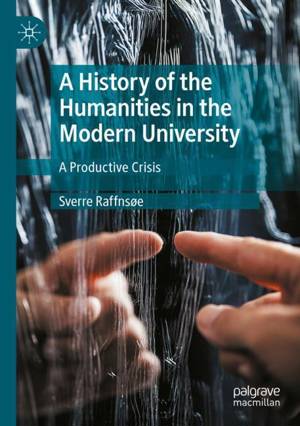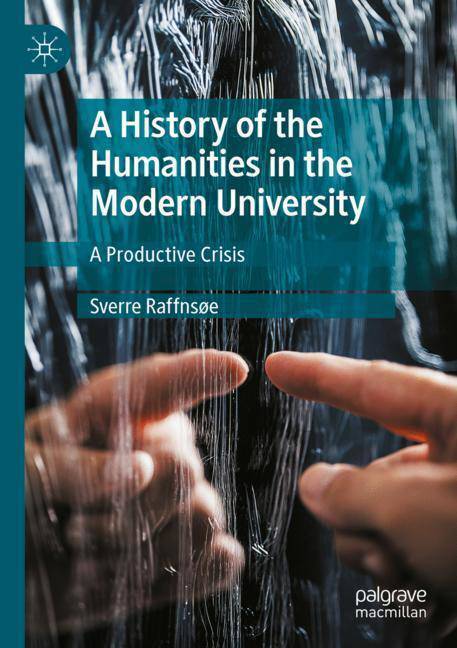
Bedankt voor het vertrouwen het afgelopen jaar! Om jou te bedanken bieden we GRATIS verzending (in België) aan op alles gedurende de hele maand januari.
- Afhalen na 1 uur in een winkel met voorraad
- In januari gratis thuislevering in België
- Ruim aanbod met 7 miljoen producten
Bedankt voor het vertrouwen het afgelopen jaar! Om jou te bedanken bieden we GRATIS verzending (in België) aan op alles gedurende de hele maand januari.
- Afhalen na 1 uur in een winkel met voorraad
- In januari gratis thuislevering in België
- Ruim aanbod met 7 miljoen producten
Zoeken
A History of the Humanities in the Modern University
A Productive Crisis
Sverre Raffnsøe
Paperback | Engels
€ 128,45
+ 256 punten
Uitvoering
Omschrijving
This book challenges commonplace assertions that the humanities are presently undergoing a severe crisis as a result of a longstanding decline. Rather than hearkening to the widespread, reactive call for a last-ditch defense of the humanities under attack from an ungracious world, this book fundamentally reverses the perspective and makes a plea for a different, affirmative approach. It contends that the humanities have incessantly arrived at critical turning points since they were first constituted in a form that remains recognizable today and assumed a leading role in knowledge organization with the establishment of the modern university around 1800. Assuming a historical perspective, the monograph takes the human sciences back to their rightful place in the family tree of sciences and gives due recognition to their continuously decisive role in the production of new knowledge and the creation of new fields of knowledge. Situating the ongoing gemmation of the humanities in a broader context, this monograph also offers an encompassing introduction to the over-all development of knowledge in the last two hundred years.
Specificaties
Betrokkenen
- Auteur(s):
- Uitgeverij:
Inhoud
- Aantal bladzijden:
- 259
- Taal:
- Engels
Eigenschappen
- Productcode (EAN):
- 9783031465352
- Uitvoering:
- Paperback
- Afmetingen:
- 148 mm x 16 mm
- Gewicht:
- 386 g

Alleen bij Standaard Boekhandel
+ 256 punten op je klantenkaart van Standaard Boekhandel
Beoordelingen
We publiceren alleen reviews die voldoen aan de voorwaarden voor reviews. Bekijk onze voorwaarden voor reviews.









